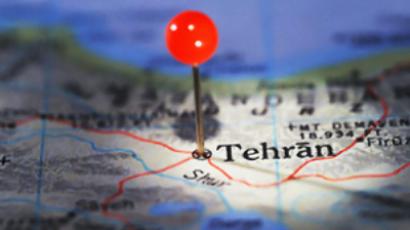The Gaza war continues – on the Internet

The shooting has died down in Gaza but the war continues – this time on the worldwide web, as Israel mobilises a corps of volunteer bloggers to counter the flood of anti-Israel commentary touched off by the war.
With a population whose roots extend to some 100 countries, Israel has decided to tap into its rich resource of multilinguals to tell its side of the story. More than 1,000 people, most of them immigrants, have responded to a government request for electronic warriors. Armed with information provided by the foreign ministry, including video clips, the volunteers have deployed into blogs, talkbacks, online social forums, online polls, Youtube and other internet vehicles to try to sway world public opinion in their native tongues and their own words.
“Much of what is out there on the web is just anti-Semitism cloaked as anti-Israel,” says Arye Sharoz Shliker, 31, an educator whose parents emigrated from Iran to Germany and who immigrated to Israel from Germany eight years ago. “But to those willing to listen I say that we are guilty of some things but there is no war without bad things happening. The main point is we didn’t start the war. I cite [German Chancellor Angela] Merkel and other leaders who say this. And I get positive responses.”
Shliker himself speaks German, Persian, English, French, Spanish and Hebrew and can get by in several other languages, but he blogs mainly in German, the language with which he grew up.
Johanna Nyhom, 51, who immigrated to Israel from Holland, volunteered to blog in Dutch after being contacted by the Immigrant Absorption Ministry, which sent emails to recent and not-so-recent immigrants asking if they were interested in participating in the program. “I don’t think people in Holland know the background here enough,” she says. “I write that Hamas has been attacking Israel for years, that it’s a terror organisation, and that if Israel doesn’t do anything the whole world will have the same problems. I say we’re not against the Palestinian people.”
A third of those responding to the ministry’s inquiry were Russian speakers followed by those whose mother tongues were English, Spanish, French and German. However, there was also a wide range of languages represented in smaller numbers from Hungarian to Danish and Arabic and even a Chinese speaker.
“We are in the process of thinking how to utilise these volunteers not only during the conflict but in regular times as well,” says Noam Katz of the Foreign Ministry, which is coordinating the program. The Foreign Ministry directs the volunteers to specific foreign-language news sites and blogs where it detects an anti-Israel trend.
In the battle for hearts and minds, the Arab side has not been idle. Thousands of Israeli websites have been hacked from Arab countries since the Gaza war began and Palestinian and other Arab sites are brimming with anti-Israel material, including video clips. Pro-Israel surfers have created heavy traffic on Hamas sites, shutting some of them down.
Black propaganda, in which a source purporting to be on one side of the conflict is really from the enemy camp, is part of the game as well. Arab media frequently carry reports quoting a Hebrew University professor named Elia Bnay Simon, offering ‘information’ not carried in the mainstream media. This includes the unreported assassination of the head of the Israeli Mossad and the fact that hundreds of Israeli soldiers were killed in the Gaza operation, rather than ten as Israel claims. “Prof. Simon”, however, is a concocted figure in a black propaganda operation emanating, according to the Israeli media, from Syrian intelligence.
Abraham Rabinovich for RT













